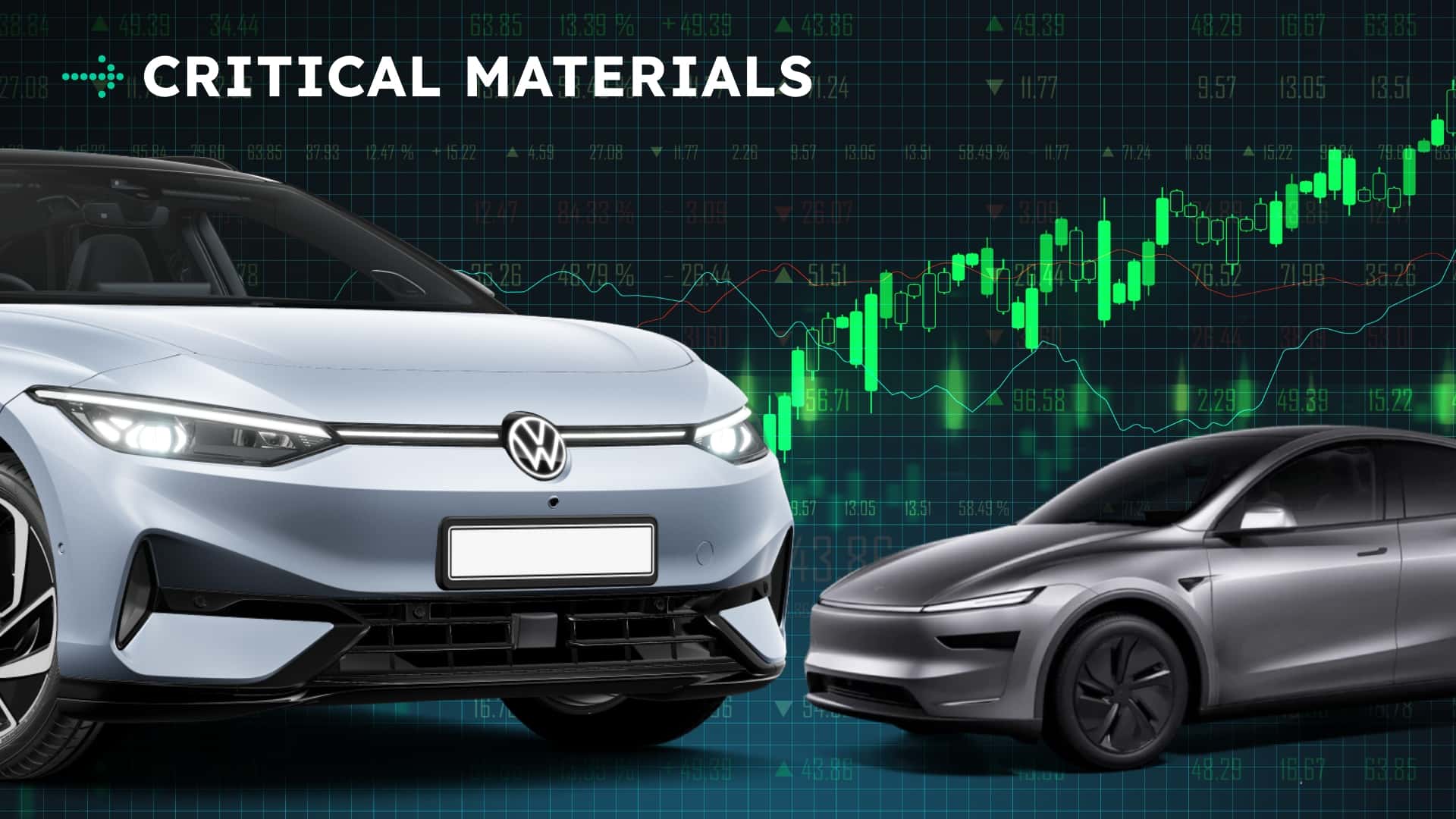
As tensions rise at Tesla, the Volkswagen Group sees an opportunity and is stepping in. Meanwhile, BYD is seeing growth, and South Korea is considering implementing tariffs as a solution.
I generally dislike making forecasts. As a journalist, my primary role is to report facts, and I prefer not to risk being incorrect. However, if you're looking for an illustration of how swiftly predictions can become outdated, consider this: less than half a decade back, a major consultancy company forecasted Volkswagen was predicted to become the leading global manufacturer of electric vehicles by 2025, with sales of at least 1.4 million EVs worldwide, followed closely by Renault-Mitsubishi-Nissan in the second position.
It ended up being very incorrect in numerous aspects. The previous year, worldwide, Volkswagen achieved roughly half of that amount. 745,000 EVs worldwide , and even that was quite an achievement. As for Renault-Mitsubishi-Nissan, well... That particular option also comes with its own set of problems. .
However, not many people anticipated the direction that Tesla and its CEO, Elon Musk, have recently adopted. Now, it appears that the Volkswagen Group—the initial " pivot to electric The company’s growth is accelerating in certain areas as individuals seek options beyond Tesla. really can't predict the future.
This starts off our mid-week edition. Critical Materials In this edition of our daily digest covering automotive and tech news, we'll explore how China’s BYD is thriving amidst global challenges, particularly with tariffs causing disruptions worldwide. Additionally, these circumstances have led South Korea to provide support to its automobile manufacturers. Stay tuned for more details.
30%: Volkswagen Group Triples Electric Vehicle Sales in Europe While Tesla Faces Setbacks
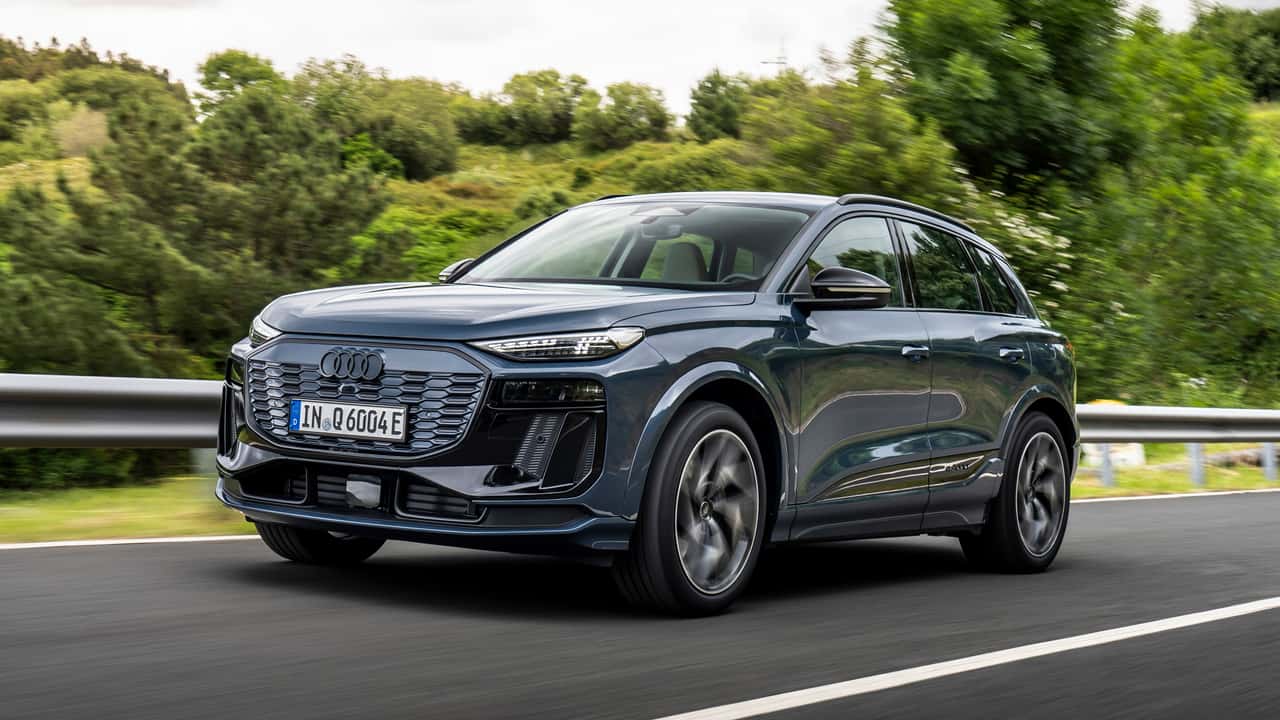
2025 Audi Q6 e-tron
I'm not responsible for cheering for one automotive brand over another, nor do I particularly concern myself with their profitability. However, even I must acknowledge it’s refreshing to witness the VW Group achieving successes in electric vehicles, despite being somewhat emblematic of certain issues. how challenging the software-driven electrification shift is really is.
Today, the car manufacturer reported global vehicle deliveries of 2.13 million in the first quarter, marking a 1.4% rise. after a brutal 2024 Interestingly, the conglomerate saw its electric vehicle sales double across Europe. Board member Marco Schubert stated in a release, “Worldwide, we boosted our electric vehicle deliveries by approximately 60% during the first quarter.” He further noted, "Especially in Europe, we greatly expanded our dominance in this sector as electric car deliveries doubled. Additionally, the proportion of fully electric vehicles within our overall output in Western Europe climbed to about 19%, up from what it was previously."
That represents an 113% increase in electric vehicle (EV) sales in Europe, along with a 51% rise in the United States. Globally, this equates to approximately 216,800 EVs sold altogether. The top-performing models in terms of sales are the ID.4 ID.5, ID.3, and ID.7 from Volkswagen itself. The Audi Q4 E-Tron and the Škoda Enyaq I still hope that the ID.7 will make it over here as well. but if it was unable to do so previously tariffs, it has become infinitely more difficult now
Bloomberg indicates that the shift away from Tesla among electric vehicle (EV) owners is a significant aspect of this situation.
Volkswagen and other electric vehicle manufacturers seem to be gaining an advantage due to customers' reluctance towards Tesla following Musk's increased involvement with U.S. President Donald Trump's administration and his support for right-wing groups in Europe, like Germany’s AfD party. In this period, Volkswagen saw its electric vehicle shipments jump by 59%, reaching 216,800 units. This surge was particularly notable in Europe where sales doubled, and also rose by 51% in the United States, which are both crucial markets for Tesla.
Musk's participation in the so-called U.S. Department of Government Efficiency's federal cutbacks initiatives One issue is that particularly the Europeans are displeased with his interference in their domestic affairs. This has led to a shift towards other brands instead of Tesla. sales in Europe Have consistently dropped below double digits each month.
Admittedly, it’s not all smooth sailing for Volkswagen. Their sales in China have continued to drop, decreasing by 7% during the initial three months of the year. This downturn has elevated the importance of the U.S. as a key market like never before; however, due to Volkswagen's significant reliance on exports from Europe and Mexico—which have been suspended—they find themselves highly susceptible to trade tariffs. At present, any setbacks faced by Tesla appear to benefit Volkswagen instead.
60%: BYD Mocks Our Tariffs, Puts More Cash Into Print
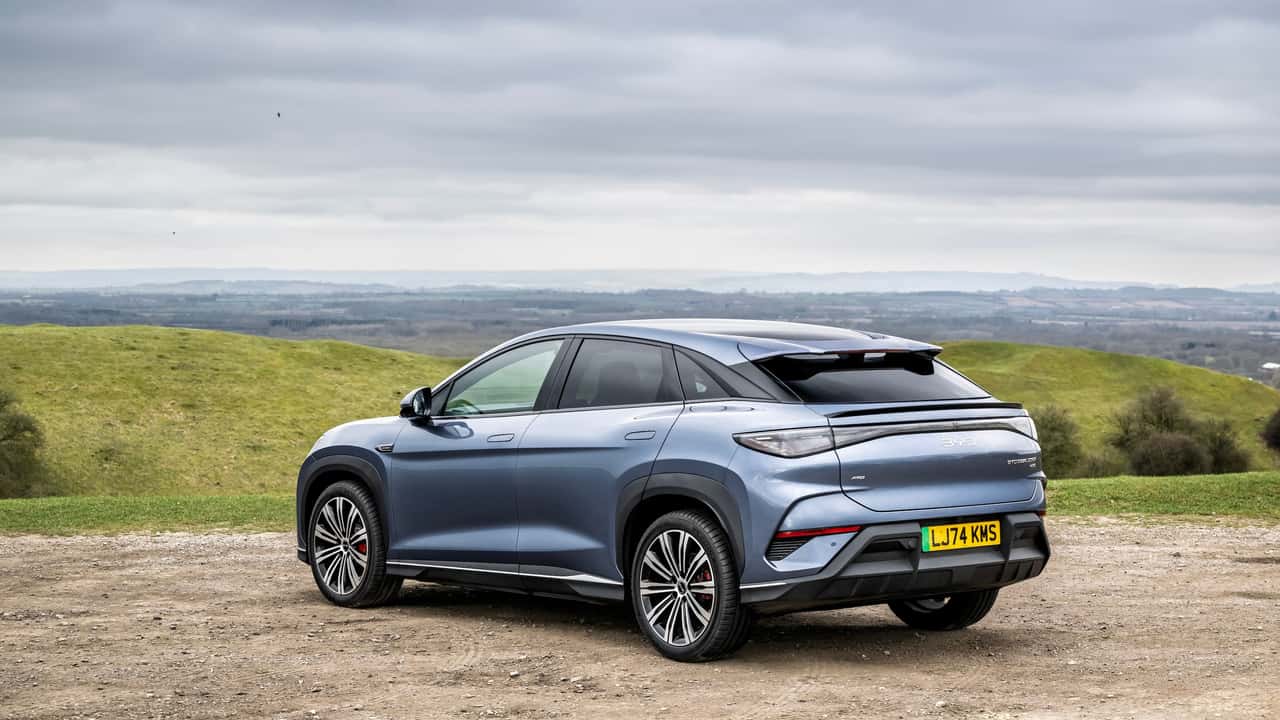
BYD Sealion 7 review
President Donald Trump has argued that one justification for his tariffs is that the global community desires—and perhaps requires—exports from the United States, such as automobiles. They simply aren't selling those vehicles. due to the unfavorable trade agreements designed to disadvantage Americans.
China's BYD wants to make a statement. They are rapidly gaining ground in the European market and have already made significant progress. asserted dominance over much of the Global South With rapidly increasing sales in Africa and Latin America, as the global automotive sector faces turmoil due to trade barriers, BYD appears well-placed to capitalize on this situation. Reuters Reports indicate that the company anticipates its net profit for the first quarter to increase by 86.0% to 119% when compared to the corresponding period of the previous year.
Once more, it’s not victories across the board. India, which is a huge automobile market, stated this. will not extend a warm welcome to BYD in this nation As it pursues Tesla, America finds itself causing chaos within the global auto industry. Meanwhile, China continues to advance steadily. This could lead us to experience numerous regrets down the line.
90%: South Korea Provides a Rescue Package to Its Auto Industry During the Trade Dispute
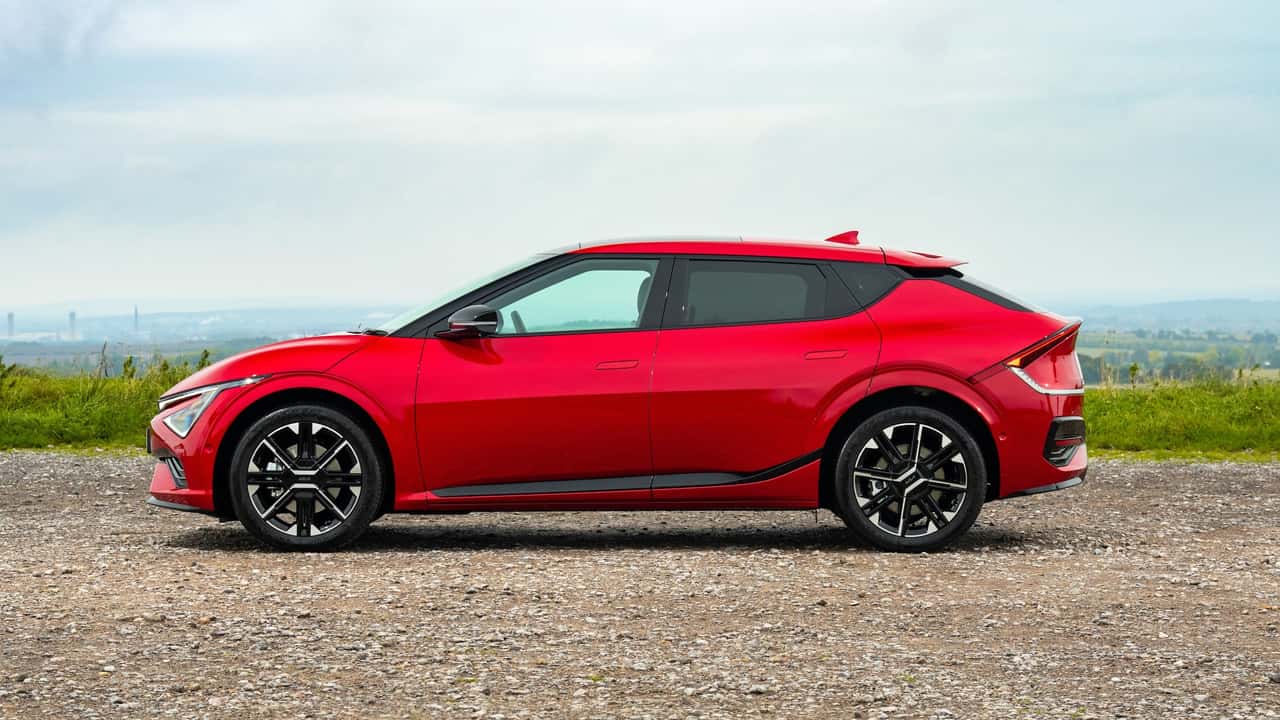
2025 Kia EV6 GT-Line European Specification Images, Runaway Red
In the meantime, South Korea’s biggest car manufacturer, the Hyundai Motor Group, is quickly advancing expanding its manufacturing capabilities in the United States However, South Korea remains highly reliant on exports. Imposing tariffs on its automobiles will be exceedingly burdensome, even within the short term.
Just like previous instances, the nation's administration is promising another round of direct "emergency" assistance to its automobile industry. Additionally, these companies are also looking towards global markets for their growth strategies. Through Bloomberg :
South Korea announced an emergency financial support package totaling 3 trillion won ($2 billion) aimed at bolstering its automotive sector amid concerns over President Donald Trump’s tariffs. To alleviate the impact, the government plans to reduce vehicle purchase taxes to 3.5% from the present rate of 5%, effective until June.
It plans to increase electric-vehicle subsidies to 30% to 80% of the price discount from the present 20% to 40%, and prolong the initiative until the close of this year.
The government plans to classify autonomous driving technology as a nationally strategic sector and offer tax benefits. Additionally, they announced their intention to vigorously assist automobile manufacturers in increasing exports to the "Global South," encompassing emerging economies across Africa, Latin America, and parts of Asia where market demands are rising.
It's quite possible that we'll witness comparable actions from other nations in the near future.
100%: Who Emerges Victorious Through All These Tariffs?
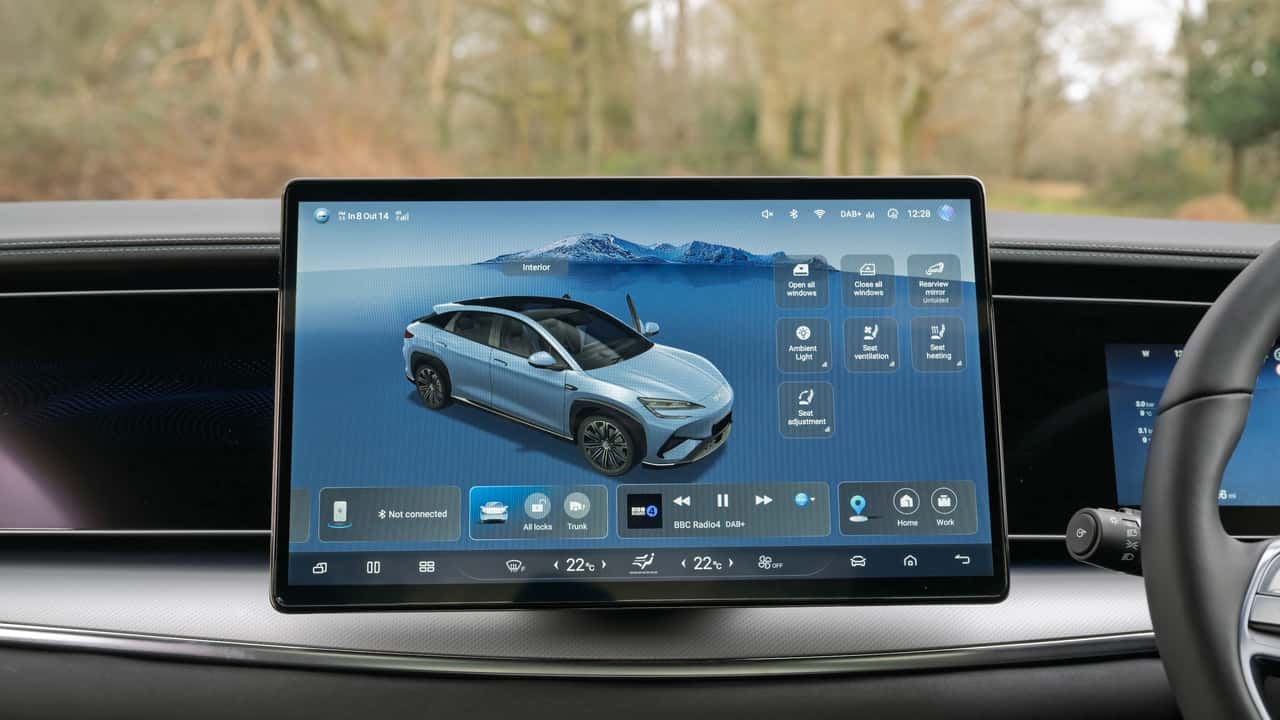
BYD Sealion 7 review
In reality, no one truly emerges as a winner in a trade war that drives up the costs of various products. causes chaos in the markets However, certain car manufacturers are more prepared than their competitors to endure this challenging period—or perhaps capitalize on the vulnerabilities of those less fortunate.
Consider the case of the Volkswagen Group. The company desperately requires growth in the United States market due to stagnant sales in Europe and a significant downturn in China. Despite this, much of its production relies on operations in Mexico, with only a limited output from its facility in Chattanooga, Tennessee. This situation will likely lead to considerable challenges for them in the near future. Personally, I believe Tesla might have fared better overall; however, issues stemming from their leadership could complicate matters for them as well.
Next up are the Chinese automakers. Increased tariffs on Chinese products won’t benefit their economy, but they might seize this opportunity to expand into different markets and accelerate growth as other competitors may slow down. They hold sufficient leverage to do so. to drive their expenses down as needed.
Who do you believe will emerge as the standout among everyone from this situation? Share your thoughts in the comments section.
Contact the author: patrick.george@insideevs.com
More EV News
- The Tesla Model Y Is Now $11,000 Less Expensive in the U.S.
- The 2026 BMW iX Offers Greater Range Compared to Any Tesla Model
- A New $25,000 Electric Vehicle Truck Firm Gets Support From Jeff Bezos, Says Report
- Not All Hybrid Designs Are Alike: Understanding the Mechanisms of Parallel and Power-Split Configurations
- The Major Victor Amid Tariff Impacts: Pre-Owned Electric Cars
- Volvo's Energy Storage Solution Can Refuel Up to 20 Electric Vehicles Daily
